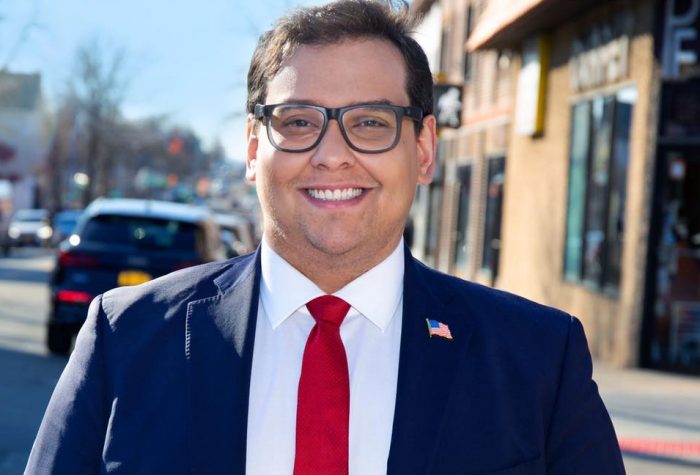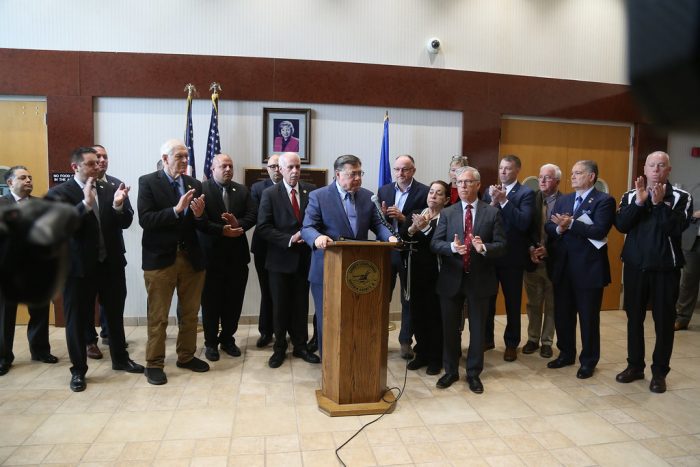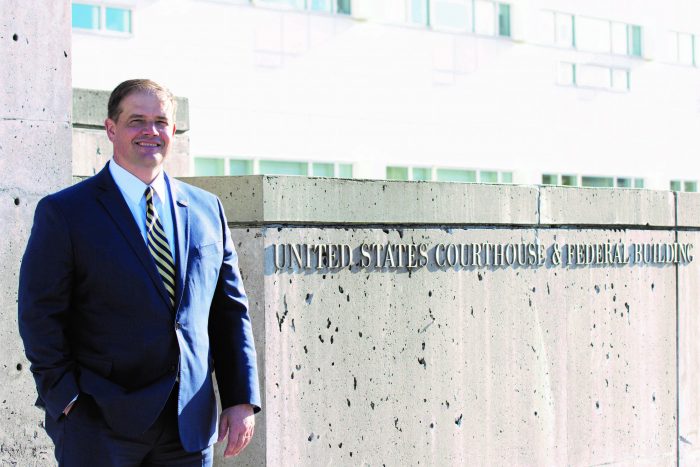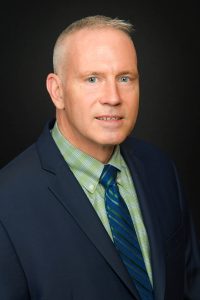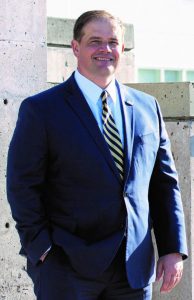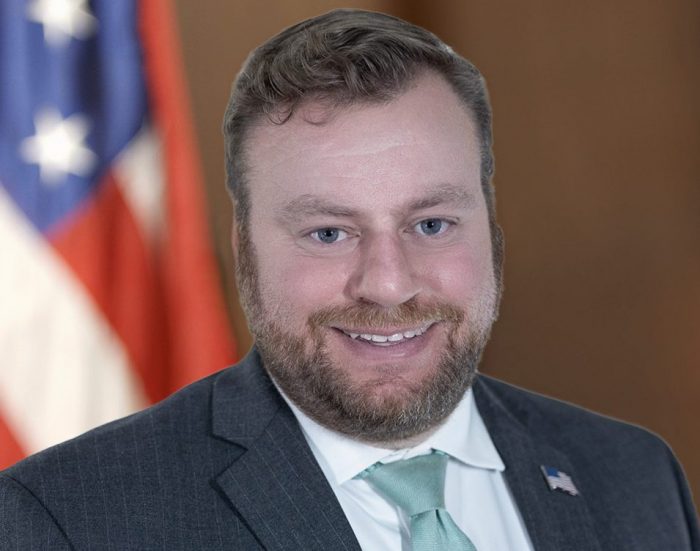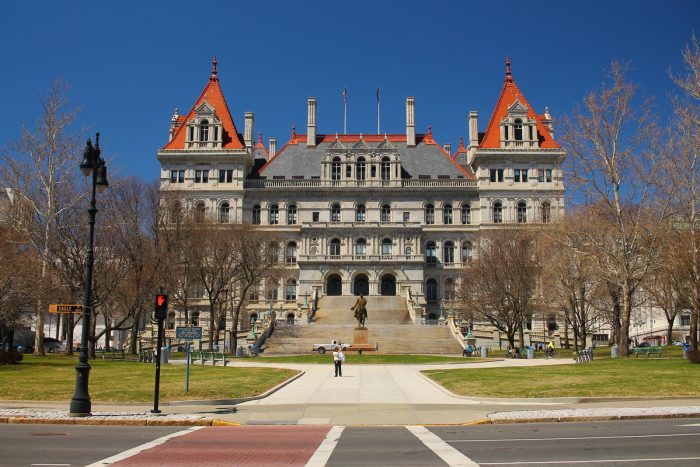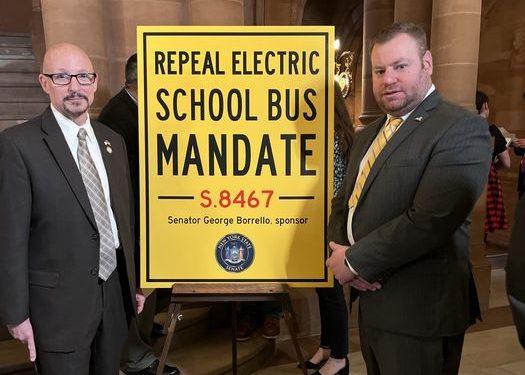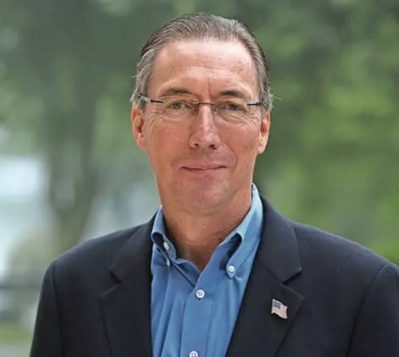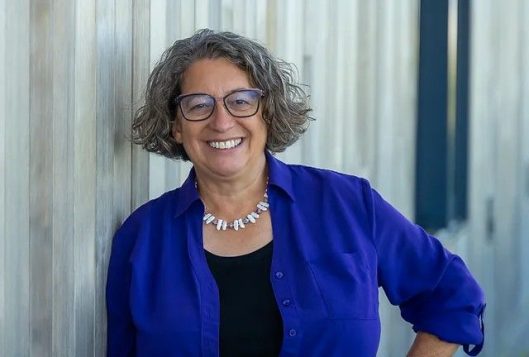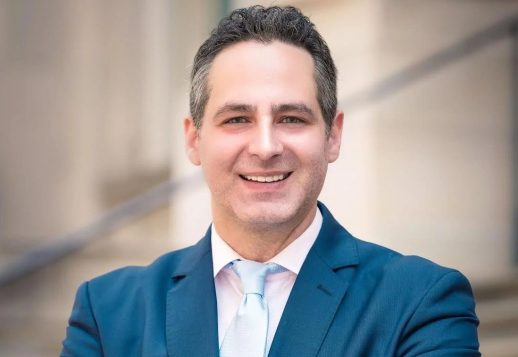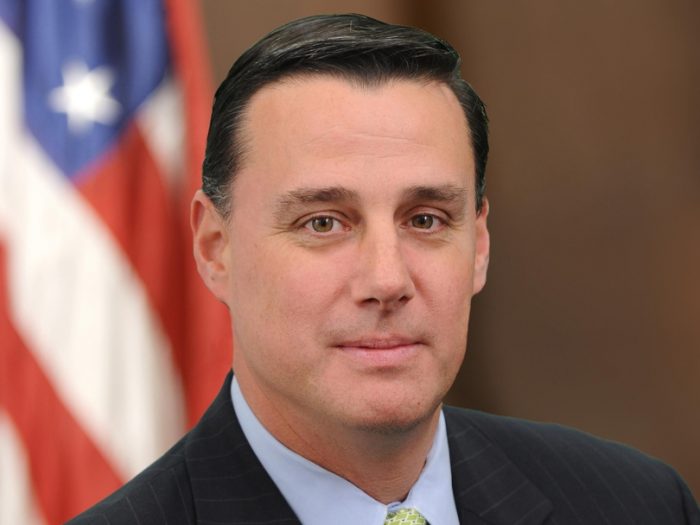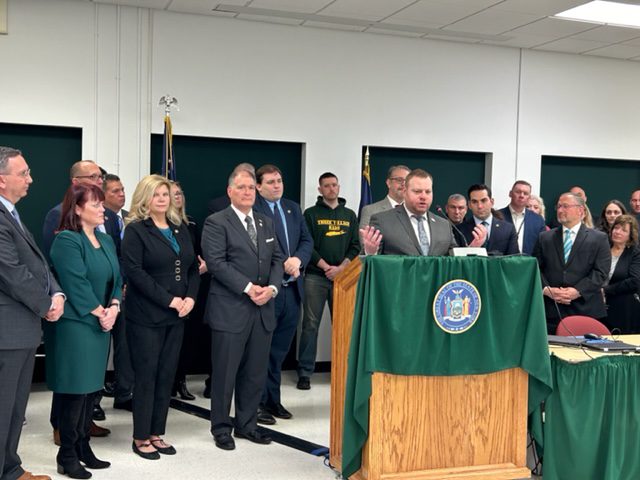By Mallie Jane Kim
Local political representatives and school superintendents rallied to Three Village Central School District Jan. 25 for a passionate press conference decrying proposed cuts to state school funding in Gov. Kathy Hochul’s (D) proposed budget.
Hochul touted an $825 million increase in state funding for schools overall, but some districts — including 34 in Suffolk County and 10 in Nassau — would face decreases. Of these, Three Village would lose the highest dollar amount at nearly $9 million if the governor’s plan stands, and the smaller Port Jefferson School District would be hit by the largest percentage of funding loss on Long Island — over 28%. Mount Sinai, Cold Spring Harbor, Smithtown and Kings Park school districts would also see modest cuts. This marks a break from the “hold harmless” provision in New York, which in the past has guaranteed school districts didn’t receive less state funding than the previous year, a practice that takes some guesswork out of budget planning.
Political opposition
“Governor, stop playing politics with our children — because we will fight you tooth and nail,” New York State Assemblyman Ed Flood (R-Port Jefferson) said at the event. “We need to restore some common sense and do what’s right for the children of our community. Where are our priorities? Let’s put our children first.”
The politicians who spoke — including U.S. Rep. Nick LaLota (R-NY-1), state Assemblymembers Jodi Giglio (R-Riverhead), Jarett Gandolfo (R-Sayville), Doug Smith (R-Holbrook) and state Sen. Mario Mattera (R-St. James) — were united in considering the cuts as a targeted political attack and a conscious choice by the governor.
LaLota referred to the Jan. 5 Long Island Association’s annual State of the Region breakfast during which, as reported by Newsday, Hochul traded barbs with Nassau County Executive Bruce Blakeman (R), including her quip, “I walked in, I hear somebody doesn’t want New York on Long Island, I was ready to walk off the stage right then. You don’t want me to take all the money with me, though, right?”
LaLota called Hochul a “schoolyard bully” and suggested she is using children as a political pawn against Long Island.
“It is wholly unfair and unjust to take money from our kids because she’s got a political squabble with us,” he said. “Don’t come after our kids because you have a political problem with Long Island. The right thing to do is to fully fund our kids’ education — that’s something we rely upon.”
The governor’s state budget proposal represents a first draft. The state Assembly and Senate will be instrumental in crafting the finalized version, which is due April 1 — but does not often come in on time. If the budget takes until early May to pass, as it did in 2023, school districts will be in a tricky situation since their budgets must be ready and made available for public review between April 30 and May 7.
Superintendents and other groups oppose cuts
“It is important to recognize that these proposed changes will create uncertainty and hardship for our districts,” said Bayport-Blue Point Superintendent Timothy Hearney, who also serves as president of the Suffolk County School Superintendents Association. His district stands to lose 3.34% of its state funding under the plan.
Even though the budget is a first draft and subject to political bargaining in Albany, any final answer may come too late. School districts spend the early spring ironing out budget plans, so unless there is a change soon, districts will be faced with the option of incorporating the funding loss into the 2024-25 school year budget or risk putting up a budget that could surpass the state’s mandated cap on increases to the tax levy, an unpopular option for Long Island taxpayers, who already face high property taxes. In this instance, budget passage would require approval by a supermajority of voters (60 percent or more).
Hearney pointed out that education costs have increased even as enrollments have decreased over the past decade or so, in a nod toward one of Hochul’s stated reasons why some districts should receive less funding. “It’s crucial to underscore that condensing a decade’s worth of lost enrollment in a single year places an overwhelming burden on all of our districts,” he said.
Other concerned superintendents standing in support were Christine Criscione from Mount Sinai, Jessica Schmettan from Port Jefferson and Kevin Scanlon from Three Village.
Scanlon spelled out what he thought the “significant challenges” losing $9 million in funds for his district would pose at a Jan. 24 school board meeting, the night before the press conference. He said he hoped for compromise in Albany, but that such sudden cuts would require drastic measures to accommodate. He said the district may have to close a school or discontinue the Three Village Academy high school program, and they may have to make cuts to the pre-K and pre-K enrichment programs, the Intellectually Gifted Program, special education aides, teaching positions, administrative positions, educational and extracurricular programs and even security.
“Every area of this community will be impacted, so Three Village needs to come together as it has never done before,” he urged at the board meeting. “Parents, students, teachers, administrators, anyone out there — anyone on the street we can get in this community to be part of this conversation — we need for advocacy.”
Those who showed up to advocate at Thursday’s press conference included school board members, staff and teachers union members from Three Village and Mount Sinai, as well as members of parent teacher associations, also civic and community groups, including the local parent group Three Village Dads.
David Tracy, leader of Three Village Dads, said he isn’t interested in being divisive politically, but couldn’t ignore the air of apparent retribution in the governor’s move. “Long Island was not a huge voting fan of the governor. I hate to believe this cut in the budget is somewhat of a backlash for that,” he said, adding that the disparity in funding changes from district to district is baffling to him. “It’s just tragic that it comes from our kids.”
Three Village Civic Association president Charles Tramontana agrees the issue is bipartisan. “Nobody wants to see that amount of funding cut without some sort of warning. I don’t think it’s controversial,” said Tramontana, who was scheduled to attend the press conference but was stuck home sick.
“I don’t understand the way the state operates sometimes,” Tramontana said. “They didn’t give any notice that they were dropping that ‘hold harmless’ provision. Basic fairness would dictate that you would give some warning.” He added, “We took some hit— $9 million in one year is definitely going to cause some chaos in our budget.”

